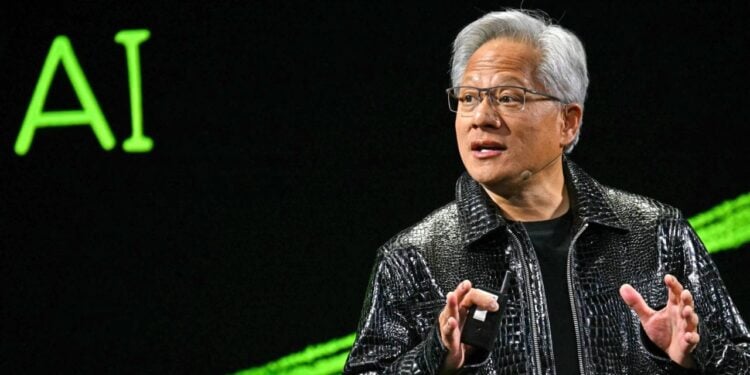AI agents are quickly becoming part of the workforce, and as NVIDIA’s CEO Jensen Huang pointed out at the Consumer Electronics Show in Las Vegas, Nevada, last week, companies are going to have to figure out how best to work with them.
The chip-making giant recently released a set of AI Blueprints, or agent models that can be integrated directly into a company’s software. In the future, Huang says these AI agents will work alongside employees helping them with everything from busy work to wrangling customer concerns.
But these tools need to be efficiently managed, he added, before going on to make a bold prediction for the field of human resources as we know it.
“In a lot of ways, the IT department of every company is going to be the HR department of AI agents in the future,” said Huang during the keynote.
He believes that in the not so near future IT teams will be tasked with onboarding these agents and ensuring they’re kept in line, similarly to how HR teams manage employees. They may need to be trained to use certain vocabulary that’s unique to the company, or be given examples of the kind of product the team is looking to develop, or briefed on company culture policies.
Instead of just fixing servers and resetting passwords, IT professionals will soon be supervising fleets of digital workers.
To a lot of people, that line of thinking may seem more like science fiction than reality. And one HR leader recently caused a stir after referring to AI bots as “digital workers.” But some experts say that the merging of IT and HR is not so far-fetched.
“Similar to how people and culture teams are responsible for attracting the best human talent and skill sets to enable a business to thrive, IT teams will increasingly be expected to procure the best frameworks, assemble cutting-edge technologies, and optimize computer power to deliver digital employees and capabilities that drive organizational success,” Chris Daden, chief technology officer at Criteria, a talent management platform, tells Fortune.
He predicts that by the end of 2025, 30% of companies will have “digital employees” who are contributing to enterprises in a meaningful way. He does note that this evolution highlights the need for robust infrastructure — not only for developing and deploying AI models but also for governing their behavior and ensuring alignment with organizational values.
“As companies onboard and manage these AI agents as digital employees, it’s crucial to apply the same rigor and thoughtfulness that have long guided human workforce management,” he says.
Other experts, however, are more critical about the use of AI agents. Delegating work to these bots won’t come as rapidly as Huang may suggest in his talk, they say, and the transition will likely take some time, particularly as companies figure out how reliable these tools are and where they are most productive. Companies must consider not just how much time these agents save, but also the potential ramifications this technology can have on employees and how they feel about their jobs.
“Social science research in this space suggests that it’s also important for leaders to recognize the current psychological implications of these systems and how their initial implementation can—sometimes negatively—affect employees’ experiences at work,” Arthur Jago, Academy of Management scholar and assistant professor of management at the University of Washington, Tacoma, tells Fortune.
And while IT teams may be great for managing the technical aspects of the onboarding process, they may not fully grasp how the use of this technology will impact workers.
“The IT department doesn’t really understand the business of Human Resources,” Cliff Jurkiewicz, vice president of global strategy at Phenom, an AI company specializing in HR, tells Fortune.
He suggests that HR teams should be as involved as the IT department, if not more so, in the process of bringing on AI assistants.
“A better way to look at this would be that the IT department should be partnering with HR to understand its needs and to better align what AI agents can do to bring about efficiency, productivity, and information-sharing.”
This will of course, require HR leaders to gain more technical knowledge about AI. And all future leaders, especially those on the technology side, will have to become better at managing people, whether they be human or digital, says Dan Kaplan, senior client partner for Korn Ferry’s HR practice, tells Fortune.
“Leaders will need to be technical obviously, but they will need to develop the skills to harness assets, both human and digital,” says Kaplan. “HR will have to develop a whole new tool kit to help along the way.”
Written by Brit Morse for Fortune as “NVIDIA’s Jensen Huang says that IT will ‘become the HR of AI agents’” and republished with permission.
















